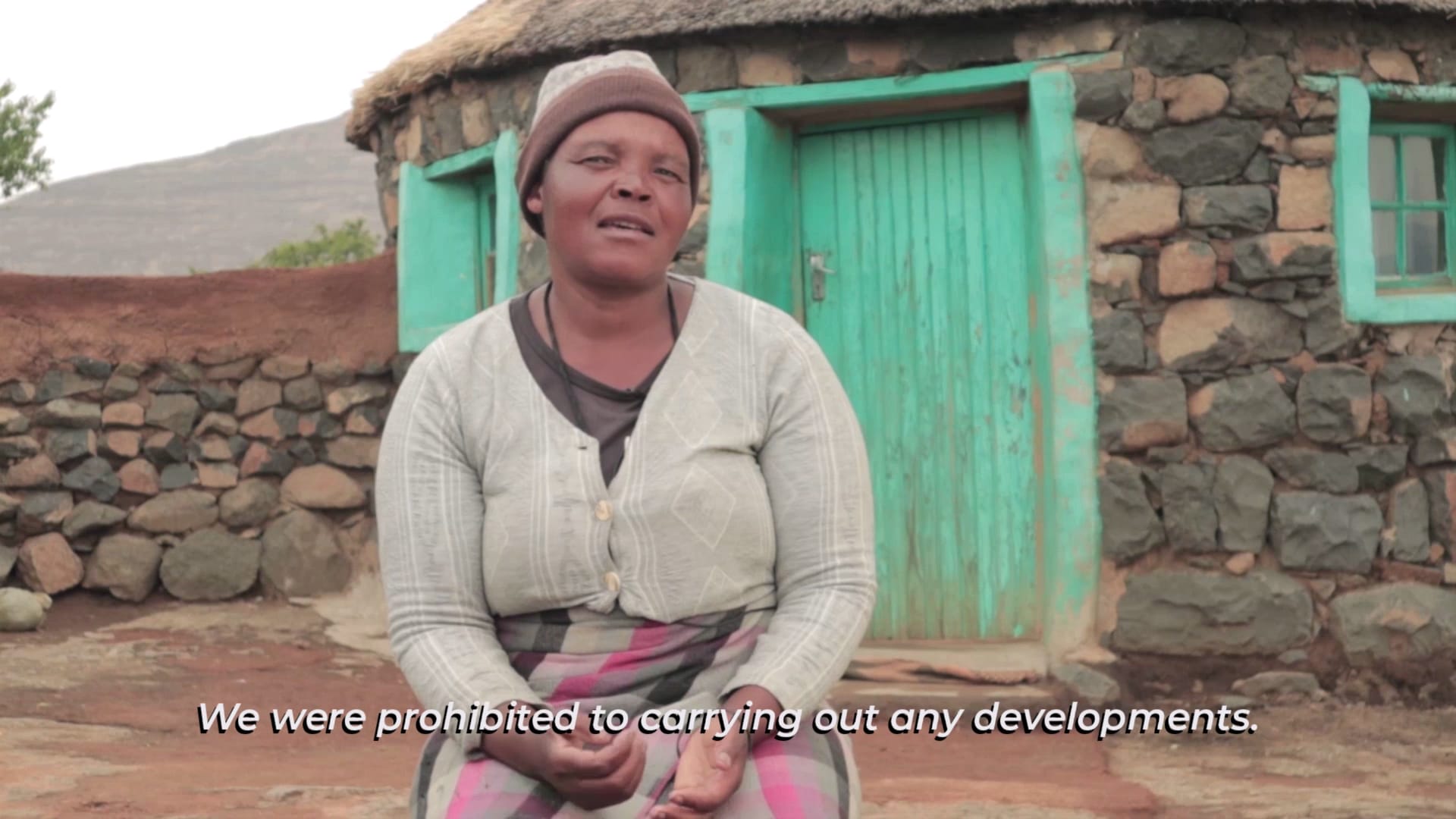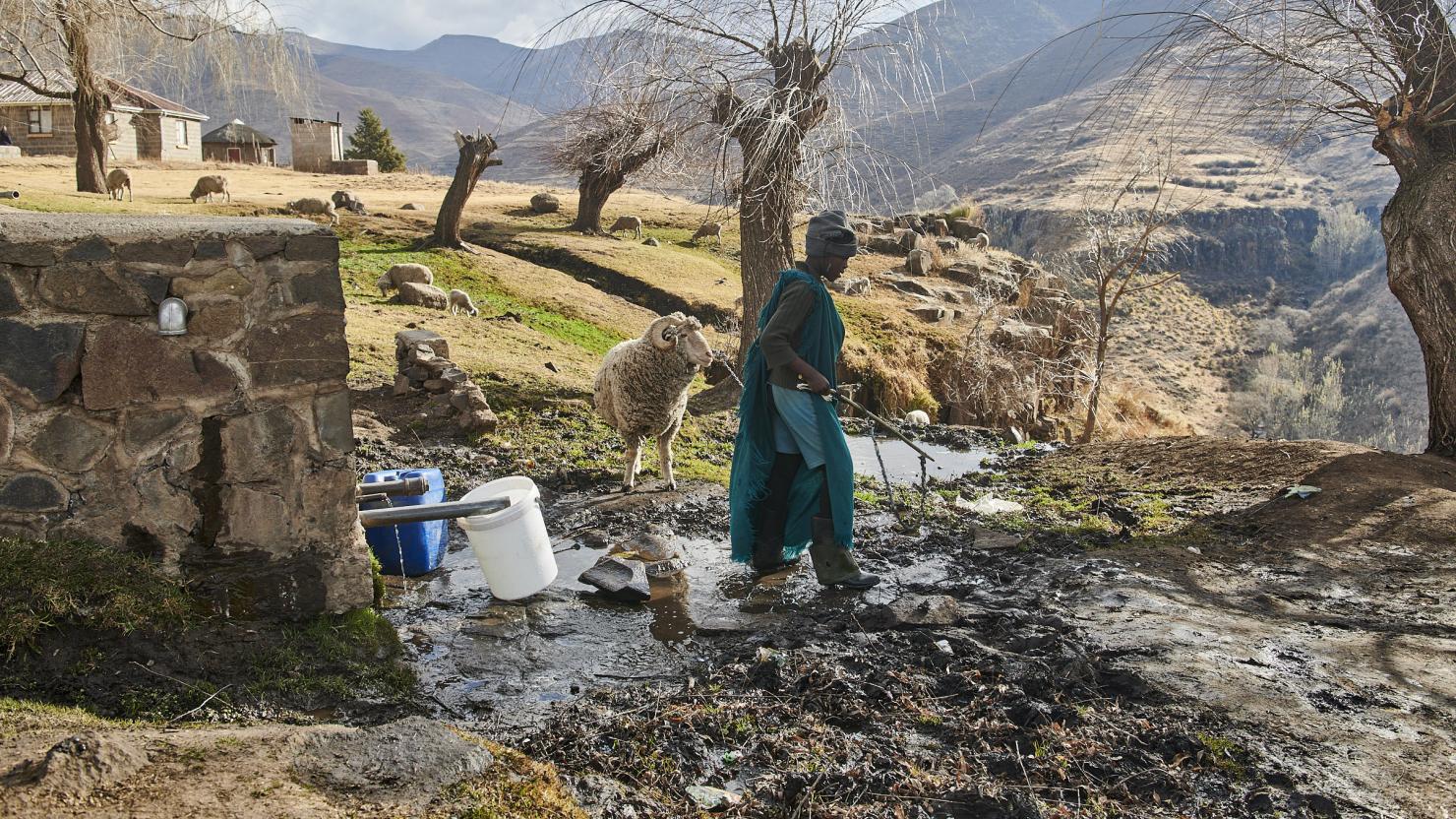By Reitumetse Nkoti Mabula on behalf of Seinoli Legal Centre, Survivors of Lesotho Dams, Catholic Commission for Justice and Peace, and Southern Africa Litigation Centre
The next phase of the Lesotho Highlands Water Project, marked by your visit on 23 May 2023, will lead to the renewed physical and economic displacement of thousands. The result is imminent food insecurity, impoverishment, and the breakdown of social networks and culture.
Dear President Cyril Ramaphosa,
Your visit to Polihali, Mokhotlong, to officially launch full-scale construction work of Phase II of the Lesotho Highlands Water Project (LHWP II) on 23 May 2023, is highly welcomed.
Mr President, when this project was concluded under the 1986 LHWP Treaty, it was celebrated for the immense economic returns that would accrue to both Lesotho and South Africa, including sustainable development for local affected communities.
South Africa and Lesotho made an undertaking in the LHWP Treaty, “to take all reasonable measures to ensure that the implementation, operation and maintenance of the Project are compatible with the protection of the existing quality of the environment and, in particular, shall pay due regard to the maintenance of the welfare of persons and communities immediately affected by the project”.
The reality for communities, however, is in stark contrast to this undertaking.
As you know, Phase I of this project, which involved construction of the Katse Dam (under Phase IA) and Mohale Dam (under Phase IB) was inaugurated in 2004. More than 20,000 people were directly affected by this first phase of LHWP.
Thousands remain without compensation for the adverse impacts of the project on their lives and no efforts have been made to actively ensure that communities get direct economic benefits. People living in the vicinity of the Katse and Mohale dams endure consistent violation of their right to access clean water, since access to natural springs and other sources have been affected by the dams.
Read more in Daily Maverick: Report raises alarm over mines’ pollution of rivers critical to Lesotho Highlands Water Project
Mr President, residents are not allowed to access water from the dams to water their animals and irrigate their crops. Women within LHWP Phase II-affected communities are already marginalised as a result of cultural stereotypes which prevent them from owning land and benefiting from compensation for land rights which are affected by the LHWP. Lack of access to water further marginalises them and exacerbates their inability to break free from poverty.
Land and other natural resources which are the basis of the communities’ livelihoods have been expropriated by the project without payment and compensation.
While there is a responsibility by the Lesotho Highlands Development Authority to uphold the agreement, there is a significant perception among affected communities that impacts negatively on the image of South Africa. This fundamentally detracts from South Africa’s Africa Agenda and desire to be a partner to Africans.
Moreover, affected communities are likely to seek further economic opportunities in South Africa.
Apartheid origin
Mr President, you may recall that the LHWP Treaty was signed between the apartheid government in South Africa and a military regime in Lesotho. It was concluded during a period when both governments had no regard for human rights and the dictates of democracy and good governance.
In fact, no consultations were undertaken at all with the people of Lesotho in general and the affected communities in particular. Any dissent expressed against this project was thwarted with threats and violence. It is therefore not surprising, Mr President, that the treaty has failed to promote, respect and protect the human rights of people immediately affected by the project.
Thousands will be economically displaced as a result of acquisition and inundation of their agricultural land, grazing land, including natural resources.
When South Africa decided to implement Phase II following prolonged negotiations and signed the agreement to that effect in 2011, it was in the context of these residual issues which remain outstanding to date. This occasion of your visit to the Polihali Dam project site presents an opportunity to ensure that this phase does not repeat those mistakes, and guarantee that the communities who have given way for this dam are placed at the centre of this project.
Mr President, the further implementation of advanced infrastructure works to pave the way for construction of LHWP II, known as the Polihali Dam, has already had an adverse impact on the livelihoods of communities affected by this component of the project.
The Katse Dam is part of the Lesotho Highlands Water Project and supplies water to Gauteng. (Photo: Deaan Vivier / Beeld / Gallo Images)
Land and other natural resources which are the basis of the communities’ livelihoods have been expropriated by the project without payment and compensation.
The transition into the next component of LHWP II, marked by the occasion of your visit on 23 May 2023, will lead to renewed physical and economic displacement of families. The LHWP Phase II feasibility studies have estimated that about 16 villages will need to be relocated or resettled due to close proximity to the dam and/or significantly impeded access in the event of floods.
And again, thousands will be economically displaced as a result of acquisition and inundation of their agricultural land, grazing land, including natural resources. The result is imminent food insecurity, impoverishment and the breakdown of social networks and culture.
Climate change and the growing South African population and economy dictate that South Africa will increasingly rely on water from Lesotho. The role and importance of the LHWP and the anticipated phases beyond the Polihali Dam necessitate that great care be taken to secure ownership and buy-in of communities who have hitherto remained dissatisfied with this project.
Read more in Daily Maverick: Can anyone hear the socioeconomic and environmental alarm bells on Lesotho Highlands Water Project?
The challenge, Mr President, for this occasion and for the government of South Africa is to address South Africa’s interests in keeping this bilateral project more significant to both countries without losing sight of the longer-term sustainable development of local communities.
We therefore call upon you to:
- Review, as a matter of urgency, the LHWP Treaty to align it with the international human rights standards for better protection and promotion of the rights of affected communities;
- Devote your time in Lesotho to meet civil society organisations and the communities affected to hear their concerns regarding implementation of the LHWP Phase II first-hand;
- Engage the government of the Kingdom of Lesotho and the LHWP’s implementation authorities on the challenges facing communities affected by Phase I and Phase II of the LHWP, address human rights violations of communities, and ensure their right to development and restore their livelihoods;
- Assist the Kingdom of Lesotho and Lesotho Highlands Development Authority to overhaul the entire LHWP Legal and Compensation Framework, to ensure fair and adequate compensation for communities;
- Support the Kingdom of Lesotho and Lesotho Highlands Development Authority to formulate, as a matter of urgency, the Livelihoods Restoration Policy, which is in line with best international standards, to ensure that affected communities’ livelihoods are improved; and
- Undertake, as a matter of urgency, a forensic audit of all compensation funds intended for the affected people. DM
Reitumetse Nkoti Mabula is Executive Director of the Seinoli Legal Centre in Maseru, Lesotho.









